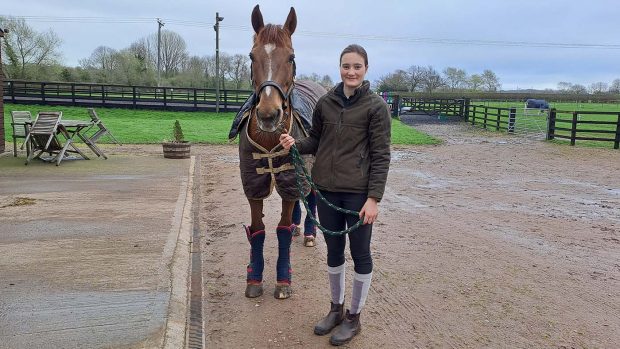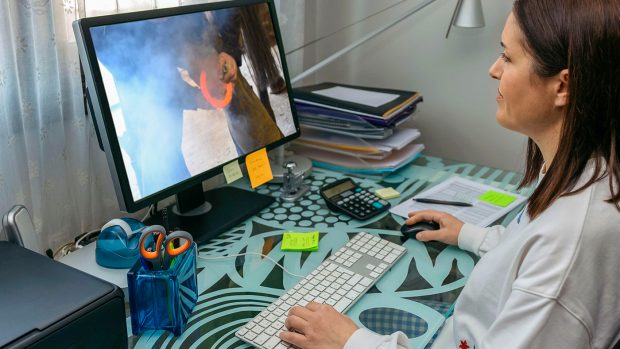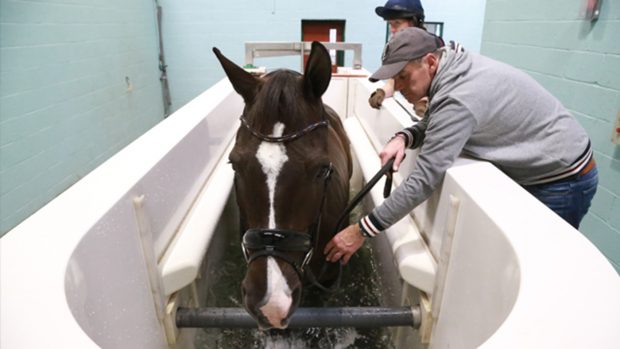A letter in H&H discussing teaching standards on equine courses has provoked a strong reaction
H&H received a bumper postbag in the current issue (12 September) on the matter of equine college courses. This was in response to an original letter by reader Mrs Tucker published in H&H on 5 September.
Here are the other letters we received:
Sir — In response to the letter in H&H last week re “Reality check for equine courses” I firmly agree that staff should be properly qualified and experienced in order to train students and fully agree that graduates should be equipped with the academic knowledge and also the necessary practical skills to succeed in the equine industry.
Warwickshire was the first to offer equine degrees and prides itself on the quality and employability of our graduates. Our most valued asset is our experienced staff team that has superb academic qualifications and is also highly vocationally qualified.
The college currently employs 4 BHSI’s, 3 BHSII SM, 6 BHSII’s, 3 BHSAI’s, 3 UKCC qualified coaches and assessors, all of whom have a wealth of experience. I personally have competed to advanced/3* level and team members regularly compete at national level in dressage, side saddle, and previously, point-to-point. The team boasts a member of the British Horseball squad and UKCC coaching coordinator and the National side saddle champion.
Warwickshire offers a diverse range of courses tailored to the student needs and aspirations. On each course students can opt to do an industrial placement year which provides invaluable experience and makes them stand out from the crowd when applying for jobs.
Where appropriate the BHS and UKCC qualifications are embedded into our curriculum. We offer a range of foundation degrees which by design are more vocational than the full degrees. Our extensive equine facilities are widely used within the modules to deliver the applied aspects of the courses and bring industrial relevance. We currently have a strong work based learning component, many exceptional visits and specialist speakers, so students gain valuable industry experience. We continually engage with employers and industrial advisors at every stage of course delivery and pride ourselves on our entrepreneurial vision.
Marcus Roberts, technical academy leader, Warwickshire College
Sir — At Writtle College, our relatively small team of equine staff do include individuals with PhD qualifications and relevant research publications.
But those same people include a senior BHS examiner; a former National Hunt jockey, who is also a veterinary physiotherapist and BHS-qualified; an ex-international showjumper who holds one of the few UK Coaching Certificate level 3 British Showjumping qualifications; an enthusiastic breeder and owner of event horses who is also BHS-qualified; a working McTimoney animal therapist, who is also BHS-qualified; a behavioural specialist, and a committed Riding for the Disabled Association volunteer who has a UKCC qualification.
Most of us are horse owners, many teach (or have taught) riding and the majority have competed at affiliated level in various disciplines (myself included).
Writtle College prides itself on being able to demonstrate clearly to students the practical relevance of everything they do within vocationally relevant academic courses. Students are generally very quick to recognise a lecturer who does not have the ability to translate theory into practice.
I am sorry that Mrs Tucker clearly had an unsatisfactory experience at one college, but please do shop around before you assume that all colleges are alike.
Caroline Flanagan, head of sport, equine and animal science, Writtle College, Essex
Sir — While agreeing with all of Mrs Tuckers’ comments, may I ask what happens to all these young people after “passing out” on their course? Very, very few seem to want to enter the equine industry.
So what is the point of the colleges, whether the lecturers have practical experience or not? A new “legacy” facility nearby has wonderful facilities — but will it ever produce a yard manager or senior instructor, I doubt it.
John Window, Bexley, Kent
Sir — I work at Duchy College, Cornwall. We train students hands on to obtain a foundation in horsecare. They are in the yard 4 days a week and in the classroom for theory 1 day a week. They are also expected to do theory homework.
Our students learn to work to speed, handle horses and cope with day-to-day life on a yard without getting stressed . To learn about a horse you need to be with them and totally dedicated to the way of life. My students have achieved some very good jobs and I get excellent reports on them.
Ann Tideswell
Sir — In response to Mrs L Tucker (H&H 5 Sept) I would suggest that it is highly appropriate for lecturers delivering at undergraduate level to hold a range of academic qualifications and to have research published. I would also argue that it is not always necessary to have been a practitioner to deliver high quality content covering the underpinning science of a discipline, e.g. many lecturers in human anatomy and physiology delivering on a medical science degree will not necessarily have ever been practicing doctors; this does not make their input to their specialist subject any less valid.
That aside, I can assure you that the academic staff in many equine colleges have a raft of practical equine experience. While I cannot comment on the staffing policy in other colleges around the UK, I can use our college as an example. Of the equine academic staff, alongside a clutch of degrees, masters and published research we have British Horse Society (BHS) examiners, BHS Stable Managers, the majority are qualified to BHS Stage 4 and IT level, several have groomed at Olympic Games and members of staff who are not BHS qualified bring other important life or equestrian skills such as service in HM Forces or Equine Veterinary Nursing.
As for the syllabus, alongside their academic studies our undergraduates complete work placements, study some practical units and all our lectures are timetabled into 3 days per week to enable students to gain part time employment in the equine industry — they are then able to leave college with a robust equestrian CV. A proportion of our highly motivated students will achieve a range of BHS qualifications and indeed one recent graduate was already a BHSAI and had groomed at the European Championships at Hickstead by the time she had achieved a first class honours degree.
I would advise all prospective students, and their parents, to “shop around” when considering studying equine science; time invested in visiting a range of colleges will mean that you find the learning environment that supports you in achieving your dreams and ambitions. Each college has its own unique character and the most important task is to find the right one for you, without doubt you will achieve most when studying at a college where you are happy and feel at home.
Lorna Cameron, course tutor BSc equine acience & BSc applied animal behaviour, Sparsholt College
Sir — In reply to the letter from Mrs Tucker (5 September) regarding the lack of practical experience of equine college staff, I would ask her not to tar all with the same brush.
I myself work at one of the leading equine colleges in the UK, having spent over 10 years working in the industry. I worked my way up from being a junior event groom, to head girl on an international eventing/showjumping yard, after which I sat my BHS exams and moved into teaching, as I felt I had gained enough practical “life experience” to allow me to teach others. I still compete my own horse and continue to progress with my own training within the BHS.
2 of my colleagues have worked for international dressage riders and successfully managed yards and the vast majority of the teaching staff compete at high levels in dressage and eventing as well as other equestrian sports and disciplines. Several run successful yards themselves and all continuously update their own training. We have a wealth of experience and knowledge of the equine industry to pass on to our students and pride ourselves on the high standards and excellent foundations we give each individual.
Whilst I totally agree with the points made by Mrs Tucker, I would ask her to consider that not all colleges are the same, and to perhaps do some further research into the different establishments available before dismissing a college education for her daughter.
Miss C Bosworth, Warwickshire



